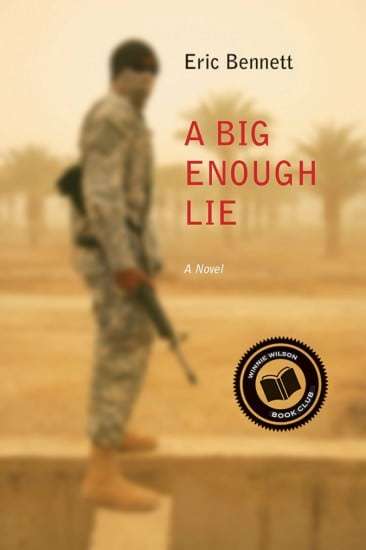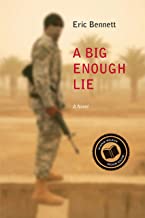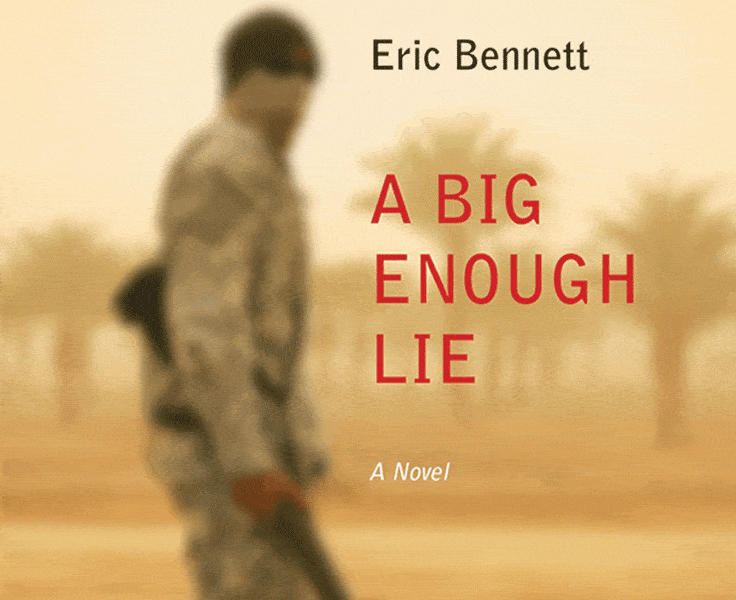A Big Enough Lie by Eric Bennett
These days, aspiring writers have a number of tools at their disposal. Whether that’s a specific software, a submission manager or something as simple as an Internet connection, people today have more tools than ever before to write quality work. But can all of those advantages work against them and actually distract the writer from what’s most important in their writing? Maybe the real problem is there’s just too much help available and not enough creativity.
As part of our ‘One Question and Answer’ series, we asked Eric Bennett, a Providence College professor and author of his debut novel, A Big Enough Lie, a question about what is most important when trying to create a solid piece of writing. Here’s what he told us:
Question: What is the most important asset a writer must nurture to achieve success?

Bennett
Eric Bennett: It’s possible for me to imagine a writer writing excellent stuff without a laptop, a Moleskine, an Internet connection, a smartphone, a fountain pen, a subscription to Poets & Writers magazine, a writing group, some Scrivener software, an MFA, a college degree, or a high school diploma. It’s even possible for me to imagine a writer writing excellent stuff without a bed, a futon, a furnace, a stove, a yoga teacher, some health insurance, multiple pairs of shoes, or amber spirits distilled south of the Mason Dixon line. But it’s impossible for me to imagine a writer writing well without reading other people’s books.
A ton of ingredients went into A Big Enough Lie: published and unpublished accounts of the Iraq war, histories of Mesopotamian archeology, fragments of Gilgamesh, the canon of accounts of modern warfare (from Tolstoy to Hemingway to Dexter Filkins)—and this is to mention only the sources relevant to the content. At the outset I was also dazzled by Ian McEwan’s Atonement, which, like A Big Enough Lie divides its thematic loyalties equally between love, war, and writing. Tim Bazzett, who reviewed A Big Enough Lie online, discovered the games the novel plays with Stephen Crane, his family tree, and The Red Badge of Courage. These elements don’t matter to a surface reading, but they are part of the underlying design and were delightful to see pointed out. In terms of the form, I took inspiration from the oblique satirical effects that Don DeLillo attains in dialogue. I wanted the book to be only subtly experimental—not obnoxiously metafictional—so it also owes a serious debt to the traditions of domestic American realism.

Self-expression and autobiographical revelation are core tenets of much contemporary writing. And the ostensible villainy of plagiarism, so relentlessly warned against, gives the impression that new books can and should be cut whole cloth from nothing. But until pretty recently, inspired borrowing was treated as a crucial part of great writing. David Mitchell recognizes this, and builds his books as temples to the genres and styles of other authors, even as he spins high-velocity plots that feel very much his own. He recognizes what other bang-for-your-buck story-tellers, from Shakespeare to George Lucas, have recognized.
One of my jobs when I teach is to police students as they observe protocols of citation, and it’s just about my least favorite part of the job. It doesn’t seem in service of ethical integrity so much as neoliberal norms regarding property rights. Samuel Johnson would have gotten kicked out of college if he’d matriculated in 2012. Fielding drew heavily on Cervantes, and Chaucer ripped off Boccaccio. And the first paragraph of this interview is my feeble homage to Rabelais. Thank you, Rabelais.
Buy this Book!
Amazon




